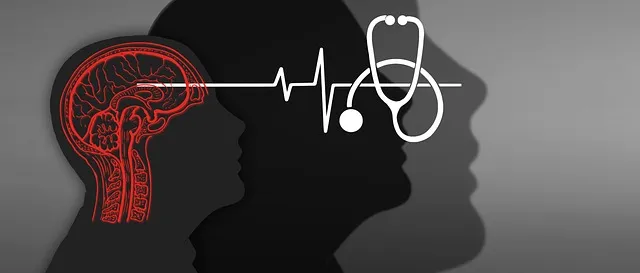The media's influence on public perception of mental illness is significant, often perpetuating stigma through stereotypical portrayals. Longmont Kaiser Permanente's behavioral health services stand out for their holistic, evidence-based approach, as evidenced by positive reviews. They advocate for more nuanced media narratives that showcase the multifaceted nature of mental illness to foster empathy and understanding. By implementing strategies like Burnout Prevention, Compassion Cultivation, and Social Skills Training, they aim to transform storytelling, break down barriers, and encourage support for those struggling with mental health issues. Longmont Kaiser Permanente's proactive program, through critical media examination, seeks to dispel stereotypes and promote an inclusive environment.
In today’s media landscape, the representation of mental illness is a powerful tool that can either perpetuate stigma or foster understanding. This article explores how Longmont Kaiser Permanente behavioral health services is at the forefront of challenging stereotypical portrayals and offering accurate, compassionate perspectives on mental health. By dissecting the impact of media, identifying common misconceptions, and presenting effective strategies, we aim to highlight innovative approaches like Longmont’s, encouraging more responsible storytelling for improved public perception.
- Understanding the Impact of Media Portrayal on Mental Health Perception
- Kaiser Permanente Behavioral Health Services: A Comprehensive Overview
- Identifying Challenges: Stereotypes and Misconceptions in Media Depictions
- Strategies for Accurate and Compassionate Mental Illness Representation
- Longmont Kaiser Permanente's Approach to Enhancing Media Sensitivity
Understanding the Impact of Media Portrayal on Mental Health Perception

The media’s portrayal of mental illness significantly influences public perception and understanding of various psychological conditions. Unfortunately, stereotypical and inaccurate representations are prevalent, often perpetuating stigma and fear. This is where organizations like Longmont Kaiser Permanente’s behavioral health services come into play, offering reviews and insights that challenge these narratives. By presenting more nuanced and realistic portrayals, media can help reduce the stigma associated with mental illness. It enables people to recognize symptoms in themselves or others and encourages them to seek support without feeling ashamed.
A responsible media landscape is crucial for fostering empathy and compassion. Incorporating strategies like Burnout Prevention Strategies for Healthcare Providers and Compassion Cultivation Practices can enhance storytelling. These approaches ensure that content creators and journalists alike prioritize accurate, balanced, and compassionate representations of mental health struggles. Furthermore, integrating Social Skills Training techniques in media production may help portray individuals with mental illness as capable and diverse, moving away from simplistic and stigmatizing characterizations.
Kaiser Permanente Behavioral Health Services: A Comprehensive Overview

Kaiser Permanente Behavioral Health Services in Longmont stands as a beacon of hope and support for individuals navigating mental health challenges. This comprehensive program offers a wide array of services tailored to meet diverse needs, from individual therapy and group support sessions to specialized programs focusing on inner strength development and confidence boosting. The approach emphasizes evidence-based practices and incorporates Mind Over Matter principles, fostering an environment conducive to healing and growth.
Reviews highlight the program’s transformative impact, with many attesting to the skilled and compassionate care provided by a multidisciplinary team. By integrating holistic treatments and empowering individuals to take charge of their mental well-being, Longmont Kaiser Permanente behavioral health services review consistently praise its ability to equip clients with the tools needed for long-term success.
Identifying Challenges: Stereotypes and Misconceptions in Media Depictions

Media representations of mental illness often perpetuate stereotypes and misconceptions, impacting public understanding and contributing to stigma. Common portrayals tend to focus on severe, undiagnosed disorders, usually depicted as either terrifying or tragic. This can lead to a skewed perception, making less severe cases and successful recoveries seem less relatable and less credible. As reviewed by Longmont Kaiser Permanente behavioral health services, these media narratives rarely reflect the reality of lived experiences, often oversimplifying complex conditions.
The challenge lies in presenting mental illness as multifaceted, with diverse symptoms and recovery paths. By showcasing accurate portrayals, from subtle struggles to intensive treatment, media can foster empathy and understanding. Additionally, integrating stories that highlight effective communication strategies and conflict resolution techniques could offer valuable insights, especially for healthcare providers facing burnout prevention challenges. These nuanced representations are crucial in breaking down barriers and encouraging those affected to seek support.
Strategies for Accurate and Compassionate Mental Illness Representation

Mental illness representation in media plays a pivotal role in shaping public understanding and attitudes. To foster accurate and compassionate portrayal, several strategies can be implemented. Firstly, Longmont Kaiser Permanente behavioral health services reviews highlight the importance of diverse, representative characters with authentic narratives. This involves consulting with mental health professionals and individuals living with various conditions to ensure storylines are both accurate and sensitive. Secondly, emphasizing cultural sensitivity in mental healthcare practice is crucial, as it helps avoid stereotypes and misrepresentations, promoting instead a nuanced understanding of diverse experiences.
Additionally, risk assessment for mental health professionals should be prioritized to protect their well-being. This includes recognizing and addressing burnout prevention strategies, ensuring practitioners are equipped to handle complex cases while maintaining their own mental health. By adopting these approaches, media can contribute significantly to destigmatization efforts, facilitating open conversations about mental illness and enhancing support systems accessible through Longmont Kaiser Permanente behavioral health services reviews.
Longmont Kaiser Permanente's Approach to Enhancing Media Sensitivity

Longmont Kaiser Permanente has taken a proactive approach to enhancing media sensitivity regarding mental health issues. Their behavioral health services reviews highlight a commitment to promoting Mental Health Awareness and Emotional Well-being Promotion Techniques. By analyzing media portrayals of mental illness, they aim to dispel stereotypes and stigmatizations, fostering a more inclusive and supportive environment for those struggling with their mental health.
This initiative focuses on educating both the public and media professionals about the realities of various mental health conditions. They believe that accurate representation can lead to increased empathy, reducing the social isolation often experienced by individuals with mental illness. Through these reviews and educational efforts, Longmont Kaiser Permanente strives to boost confidence in those facing mental health challenges, encouraging them to seek help without fear of judgment.
Media has a profound impact on shaping public perception of mental illness, making accurate and compassionate representation crucial. By challenging stereotypes and misconceptions, we can foster a more understanding and supportive society. Longmont Kaiser Permanente’s commitment to enhancing media sensitivity through its comprehensive behavioral health services reviews serves as a model for others, demonstrating that positive change is achievable. This approach not only improves the lives of those with mental illness but also encourages a culture where conversations about mental health are open, respectful, and informed.






